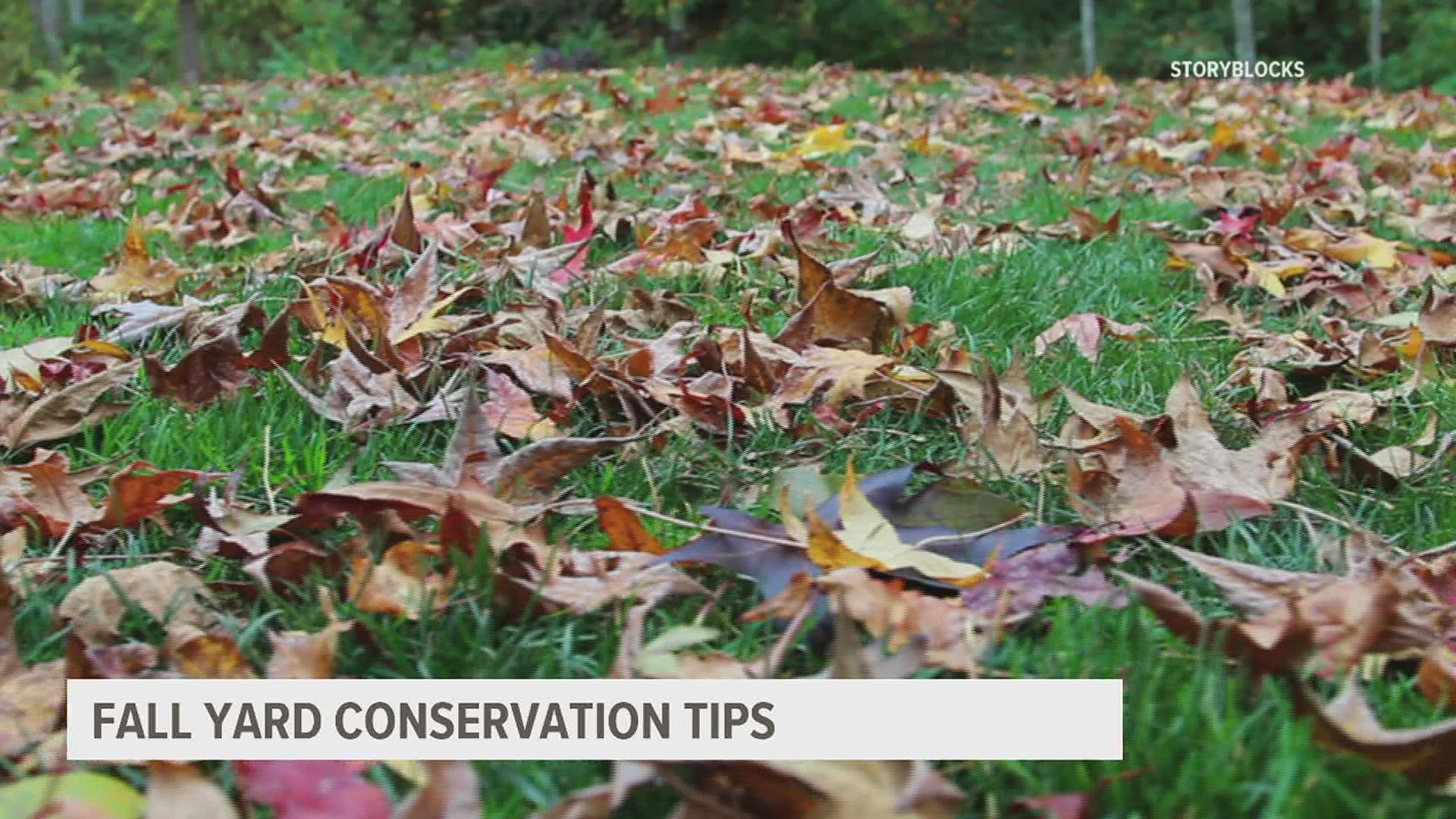PENNSYLVANIA, USA — The Pennsylvania Department of Conservation and Natural Resources (DCNR) is giving Pennsylvanians permission to not rake the leaves on their lawn. In fact, it’s better for your turf and garden if you let the leaves stay on top.
Kelsey Mummert, lawn conservation program coordinator at the DCNR, says leaving your leaves whole or mulching them with your lawn mower has a number of benefits. It provides food, shelter, and a nesting place to many insects and other wildlife. In fact, caterpillars use these leaves as a soft landing place when they fall from trees.
Mummert tells FOX43 that these leaves also act as a natural fertilizer, which can prevent chemicals from entering the environment and save you some money long term.
“That mulched leaf litter or the whole leaf litter is going to provide a really natural fertilizer," Mummert said. "And then as those leaves decompose, the nutrients are going to slowly head back into the soil to enrich it, and feed the plants growing there. So it’s acting as a natural fertilizer, so you don’t have to pay a company to come out and do that to your lawn."
Another bonus: the leaves will prevent soil loss and insulate the soil, "which then protects the soil organisms and the roots of plants that are living there," Mummert went on.
Mummert also advises leaving perennials and grasses standing over the winter, as they act as food for some birds.
Overall, transitioning lawns from straight turf grass to more natural and native areas can make a big difference when it comes to protecting native species, and it's something that people can do right in their backyard.
“Pennsylvania has about two million acres of lawns, which means a whole lot of opportunities for conservation practices in our backyards," Mummert tells FOX43. “I think (it) kind of goes against the grain, because typically we think that green is good, but unfortunately not all green is good. Lawns aren’t providing any native plants, and without native plants on the landscape, we can’t support native insects, and without those native insects, we can’t support the wildlife that’s eating those insects.”

